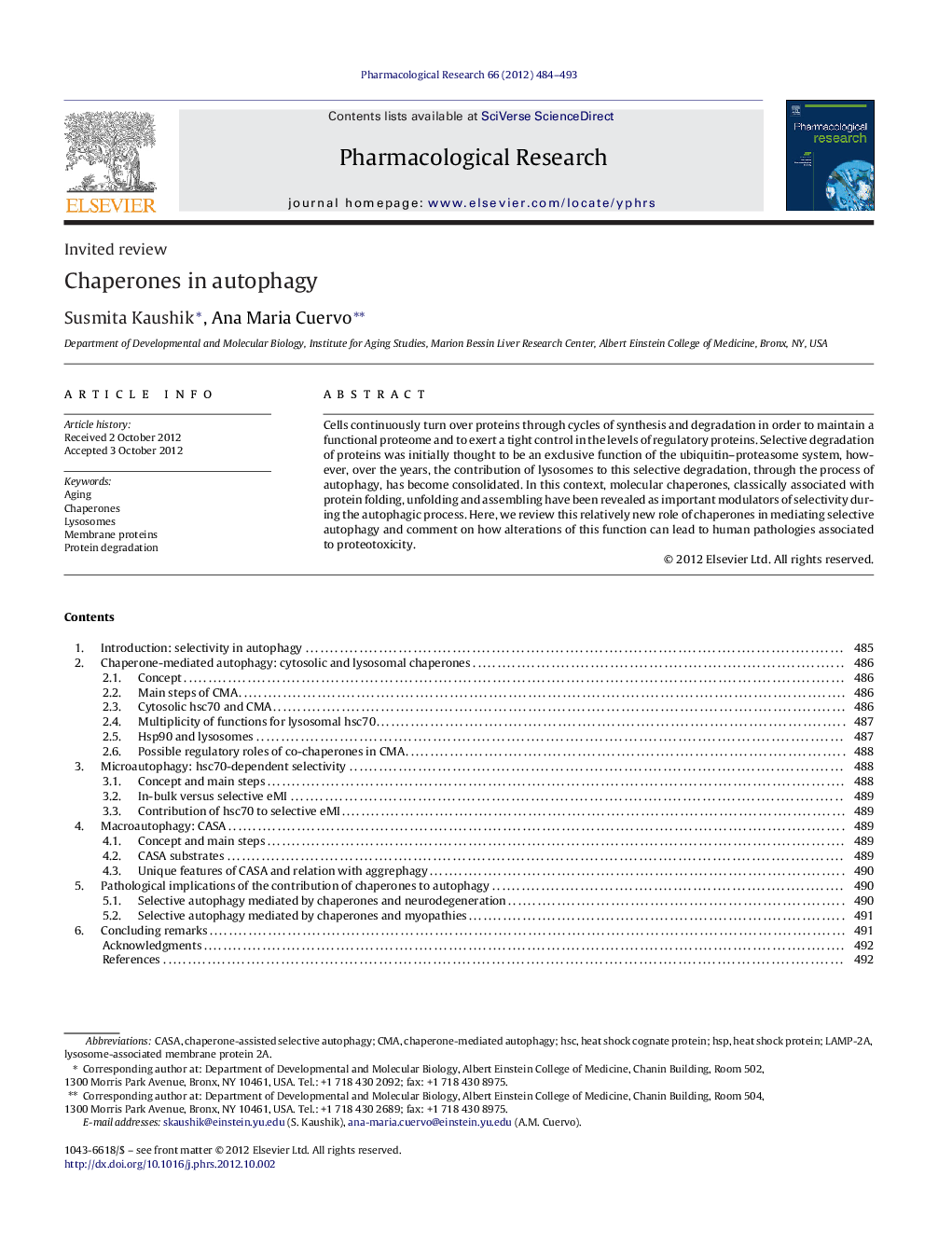| Article ID | Journal | Published Year | Pages | File Type |
|---|---|---|---|---|
| 2561449 | Pharmacological Research | 2012 | 10 Pages |
Cells continuously turn over proteins through cycles of synthesis and degradation in order to maintain a functional proteome and to exert a tight control in the levels of regulatory proteins. Selective degradation of proteins was initially thought to be an exclusive function of the ubiquitin–proteasome system, however, over the years, the contribution of lysosomes to this selective degradation, through the process of autophagy, has become consolidated. In this context, molecular chaperones, classically associated with protein folding, unfolding and assembling have been revealed as important modulators of selectivity during the autophagic process. Here, we review this relatively new role of chaperones in mediating selective autophagy and comment on how alterations of this function can lead to human pathologies associated to proteotoxicity.
Graphical abstractFigure optionsDownload full-size imageDownload high-quality image (146 K)Download as PowerPoint slide
